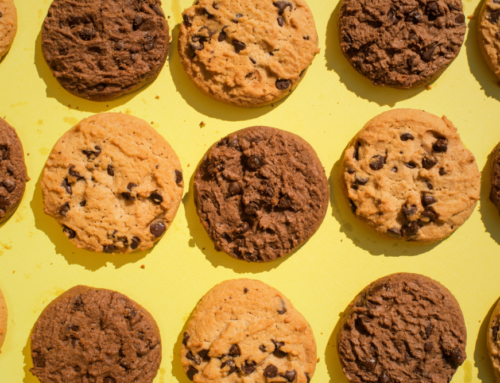
Are you a rules follower? Growing up, I was a good girl with a rebellious streak (or perhaps more of a stubborn streak…sometimes it’s hard to tell the difference). I remember when the book “The Rules: Time-Tested Secrets for Capturing the Heart of Mr. Right” came out in 1995. It made my eyes roll then, and doubly so now. (For the record, I had already found my “Mr. Right” by then without following a single rule other than being myself, warts and all, and we are still happily together today.)
The pros and cons of rules
So what does that have to do with nutrition? For the most part, rules are for the birds, with few exceptions. For example, if you have a raging peanut allergy, and eating a single molecule of peanut might send you into anaphylactic shock, then, yes, the rule that you should not eat peanuts is a must-follow. Ditto if you have celiac disease, and even a tiny amount of gluten might damage the lining of your intestines, leading to uncomfortable symptoms (possibly) and unfortunate side effects like anemia and osteoporosis due to poor absorption of nutrients. The rule that you should avoid gluten 100%? Also a must follow.
But for most people, setting rigid nutrition rules can do more harm than good. In some cases, the harm could be physical, if the rules lead to unnecessary (and non-science based) food restrictions. In other cases, the harm could be mental/emotional, if the rules require obsessive thinking about food, feelings of failure if the rules are broken, and social isolation if the rules make it difficult or impossible to enjoy a meal with friends and family.

The benefits of default behaviors
So if not rules, then what? A free-for-all? Not quite. This is where defaults come in. A default is a behavior you return to automatically unless there is a specific reason not to.
One of my default behaviors is that if I am in a coffee shop to get coffee, I don’t buy a cookie or pastry. This eliminates any mental tug of war as I wait in line next to the display of baked goods. Does this mean I never ever buy a cookie or pastry in a coffee shop? No. But when I do, it’s a pre-determined choice, not an impulse purchase. This used to come in handy when I didn’t work from home and often stopped off for coffee on my lunch break walk in downtown Seattle.
Another default is that I eat a big salad for lunch. I like salads, I feel good after eating salads, I can vary a salad in infinite ways to avoid getting bored. However, if on a specific day I feel like I would rather have a sandwich, I have a sandwich. If I’m in a restaurant at lunch time, the salad section is the first part of the menu I check out. I will always order a salad if the restaurant has one that looks good and suits my hunger level at the time. If they don’t, I’ll order something more appealing. Ditto if I have a real craving for something else (by real craving, I do not mean having a food impulse then automatically acting on it).
The antidote for nutrition decision fatigue?
One of my previous columns forThe Seattle Times is on nutrition decision fatigue. I wrote about how, when presented with too many choices (food choices AND other choices) we can reach the point where we just default to what’s easiest, or maybe to the first thing we thought of. Our brains are too tired to make a more thoughtful, considered choice. That’s where establishing your own defaults helps tremendously. It eliminates the need to muster willpower when it’s already been depleted for the day, because you’re stressed, tired or already had to make a bajillion choices, starting with what clothes to put on in the morning.
I think of default behaviors as gentle rules, because they can help guide your choices in a way that helps you take care of yourself, but allows for flexibility. It really is about self-care, not self-control. As for my default when I was looking for “Mr. Right”? He had to be somebody I would want to be friends with (read: nice, intelligent, sense of humor, some shared interests, has a purpose in life) even I didn’t want to date them. That worked out pretty well for me!
Disclaimer: All information provided here is of a general nature and is furnished only for educational purposes. This information is not to be taken as medical or other health advice pertaining to an individual’s specific health or medical condition. You agree that the use of this information is at your own risk.
Hi, I’m Carrie Dennett, MPH, RDN, a weight-inclusive registered dietitian, nutrition therapist and body image counselor. I offer compassionate, individualized care for adults of all ages, shapes, sizes and genders who want to break free from eating disorders, disordered eating or chronic dieting. If you need to learn how to manage IBS symptoms with food, or improve your nutrition and lifestyle habits to help manage a current health concern or simply support your overall health and well-being, I help people with that, too.
Need 1-on-1 help for your nutrition, eating, or body image concerns? Schedule a free 20-minute Discovery Call to talk about how I can help you and explore if we’re a good fit! I’m in-network with Regence BCBS, FirstChoice Health and Providence Health Plan, and can bill Blue Cross and/or Blue Shield insurances in many states. If I don’t take your insurance, I can help you seek reimbursement on your own. To learn more, explore my insurance and services areas page.
 Print This Post
Print This Post






